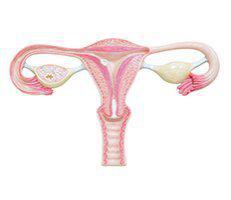What should you do to prepare for a pelvic or abdominal ultrasound?
Both pelvic and abdominal ultrasounds require a full bladder. You'll need to drink a minimum of two full glasses of water — more is even better — around an hour before your scheduled ultrasound. Avoid emptying your bladder until the appointment is complete. A full bladder allows for a much better view of the uterus and other pelvic organs.
When is the first ultrasound done during pregnancy?
In most cases, the first pregnancy ultrasound is done between 18 and 20 weeks gestation. In some cases, an earlier ultrasound may be performed at about 12 weeks to verify due date. If you fall into a high risk category, you may need to have earlier and more frequent ultrasounds for the duration of your pregnancy.
What type of information is learned in a prenatal ultrasound?
A prenatal ultrasound is an exciting event for any mom. This ultrasound can reveal information including:
- Your due date
- Whether you're carrying multiples (twins, triplets, or more)
- Your baby's heart rate
- Whether your baby is properly positioned for delivery
- Whether some types of birth defects are present
- Your baby's weight and overall size
- What type of movements your baby is making
- How much amniotic fluid is present
- Where the placenta is located
What type of information can be found in a pelvic ultrasound?
A pelvic ultrasound can be an important diagnostic tool. If Dr. Lauriston suspects any problems with your reproductive system, a pelvic ultrasound can help her diagnose the problem. A pelvic ultrasound may be performed if you have issues such as:
- Heavy blood flow during menstrual periods
- Very long menstrual periods
- Pain during intercourse
- Severe pelvic pain
- Spotting between menstrual periods
- Infertility
How does a pelvic ultrasound work?
For a pelvic ultrasound, you'll relax on the exam table just as you would for a pelvic exam.
A transvaginal ultrasound probe is quite slender and won't cause pain upon insertion in the vagina. The probe is covered in a sterile plastic sheath and a tiny quantity of ultrasound gel is applied to the tip of the probe.
You'll simply lay still while the probe generates detailed images of your pelvic organs.
A pelvic ultrasound usually only takes a few minutes.









